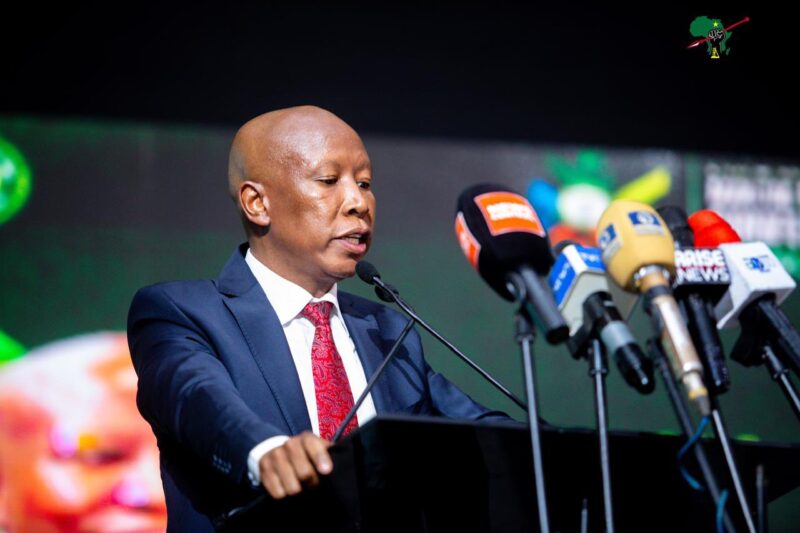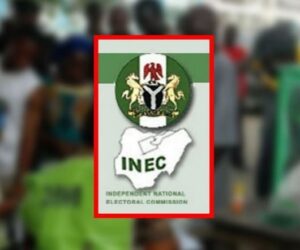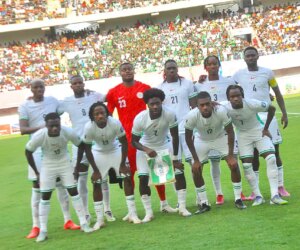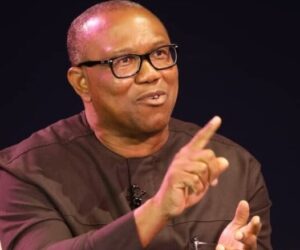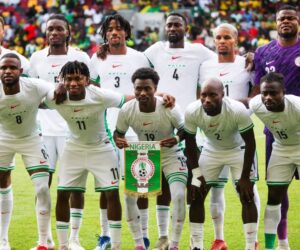South African opposition leader Julius Malema has said Africa must collaborate to industrialise and grow the continent’s economy rather than depending on foreign loans.
Mr Malema, president of the Economic Freedom Fighters (EFF), a major opposition political party in South Africa, spoke on Sunday evening during his opening remarks at the Nigeria Bar Association’s Annual General Conference in Enugu.
The EFF president said Nigeria and South Africa have the potential to lead the quest for the continent’s industrialisation and economic growth, explaining that collaborative investments in the power sector, for instance, can solve the continent’s electricity supply woes.
“Combined, we possess the minerals that power modern technology, the energy resources that fuel global industry, and the human capital to build a self-sufficient continent.
“The path forward is clear: Nigeria and South Africa must industrialise together, build factories together, and process our resources on African soil,” he said.
‘Our salvation in our hands’
The politician argued that the salvation of Africa can only be done by Africans and not foreigners, insisting that Africans must work together for the progress of the continent.
“We must reject the illusion that our salvation will come from Washington, London, Brussels, or Beijing. Our salvation lies here in Lagos and Johannesburg, in Abuja and Pretoria, in the hands of Africans who refuse to be divided,” he said.
‘Foreign loans are debt traps’
Mr Malema warned African governments against taking unchecked foreign loans which he described as a “debt trap” that could mortgage the continent’s future.
“The debt trap of Africa to our foreign colonisers must be stopped, and that begins by regulating these loans that our leaders commit future generations to, because they will not be there when the colonisers come to collect,” he said.
The EFF leader said his party has introduced the Public Finance Management Amendment Bill in South Africa to checkmate loans from these institutions.
“The Public Finance Management Amendment Bill will in South Africa deal with a problem facing the whole continent, and that is the unregulated borrowing of money by our governments from the World Bank and the International Monetary Fund.
“This bill, which we have introduced as the EFF, will require that the National Treasury in South Africa first seek approval from Parliament to source foreign loans and establish transparency regarding such loans and their conditionalities,” he said.
ALSO READ: Malema urges African unity against external domination
The EFF leader also praised Nigeria’s historic contribution to South Africa’s independence and victory over apartheid rule, describing Nigeria as a “giant of justice” in Africa.
Malema’s politics at a glance
The EFF leader has been known for his outspoken views and controversial chants, including the decades-old anti-apartheid song “Kill the Boer, Kill the Farmer.”
The song has been a contention, with some parties representing white South Africans attempting to ban it.
He vowed to continue using controversial chants despite criticism from US President Donald Trump.
In May, during a White House meeting with President Cyril Ramaphosa, Mr Trump showed a video featuring Mr Malema’s chants to support his claims of “white genocide” in South Africa.
The US president demanded from his South-African counterpart why Mr Malema had not been arrested for the controversial chants.
However, Mr Malema responded that he,” will never be intimidated by Donald Trump.” He denied genocide in South Africa and maintained that the US would not be allowed to dictate to South Africa.
Mr Malema, a former leader of the youth wing of the African National Congress – South Africa’s ruling party since the end of apartheid in 1994 – was expelled from the party in 2012 and formed the EFF in 2013.
He is a feisty critic of the South African government led by President Ramaphosa.
The politician is also an advocate of the controversial expropriation of White South Africans’ land, a key component of EFF’s economic freedom manifesto touted as measure to correcting land ownership imbalance skewed in favour of the While during the apartheid rule in the country.
Mr Malema has also called for the unification of African countries to match the economic strengths of the US and the European Union.

